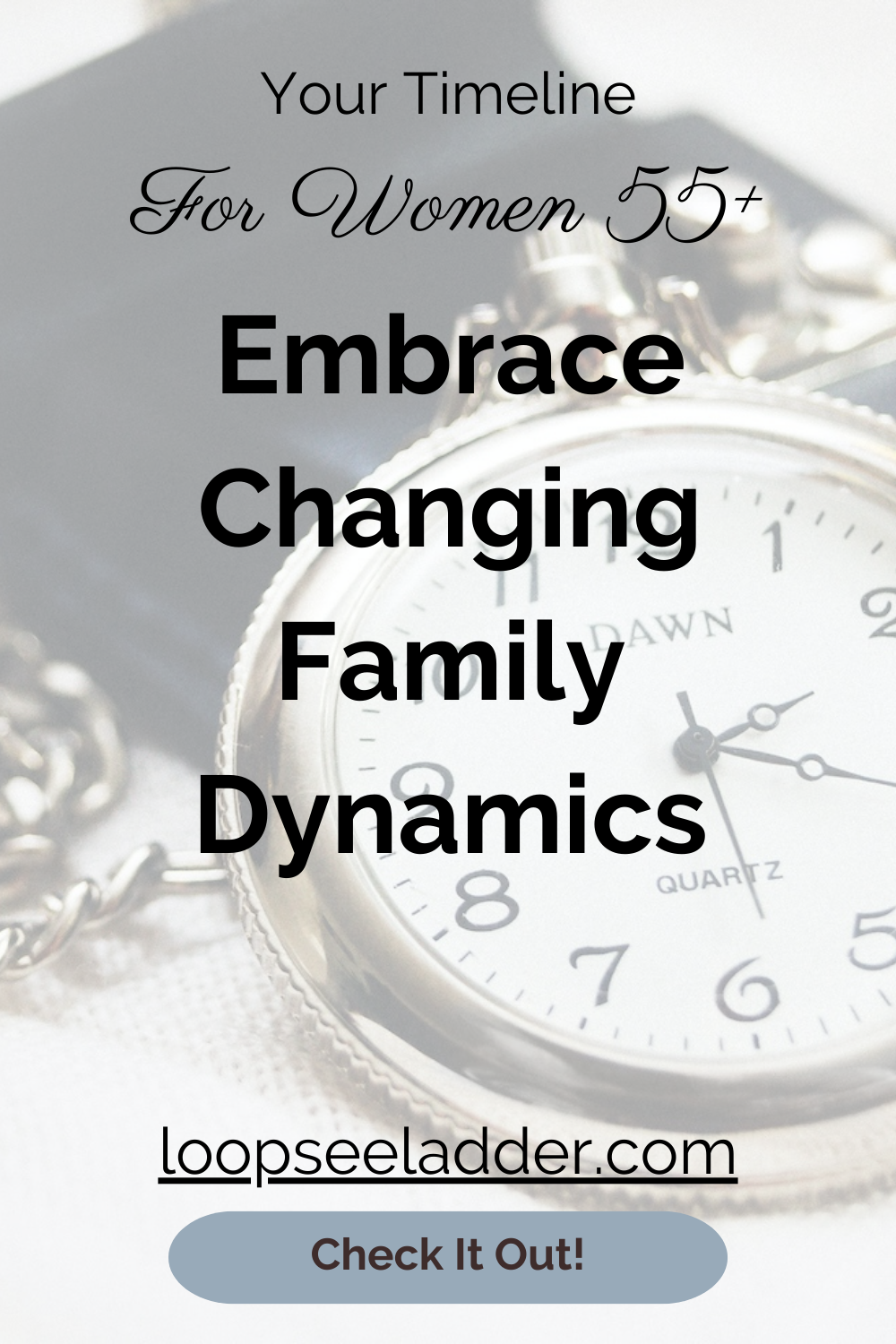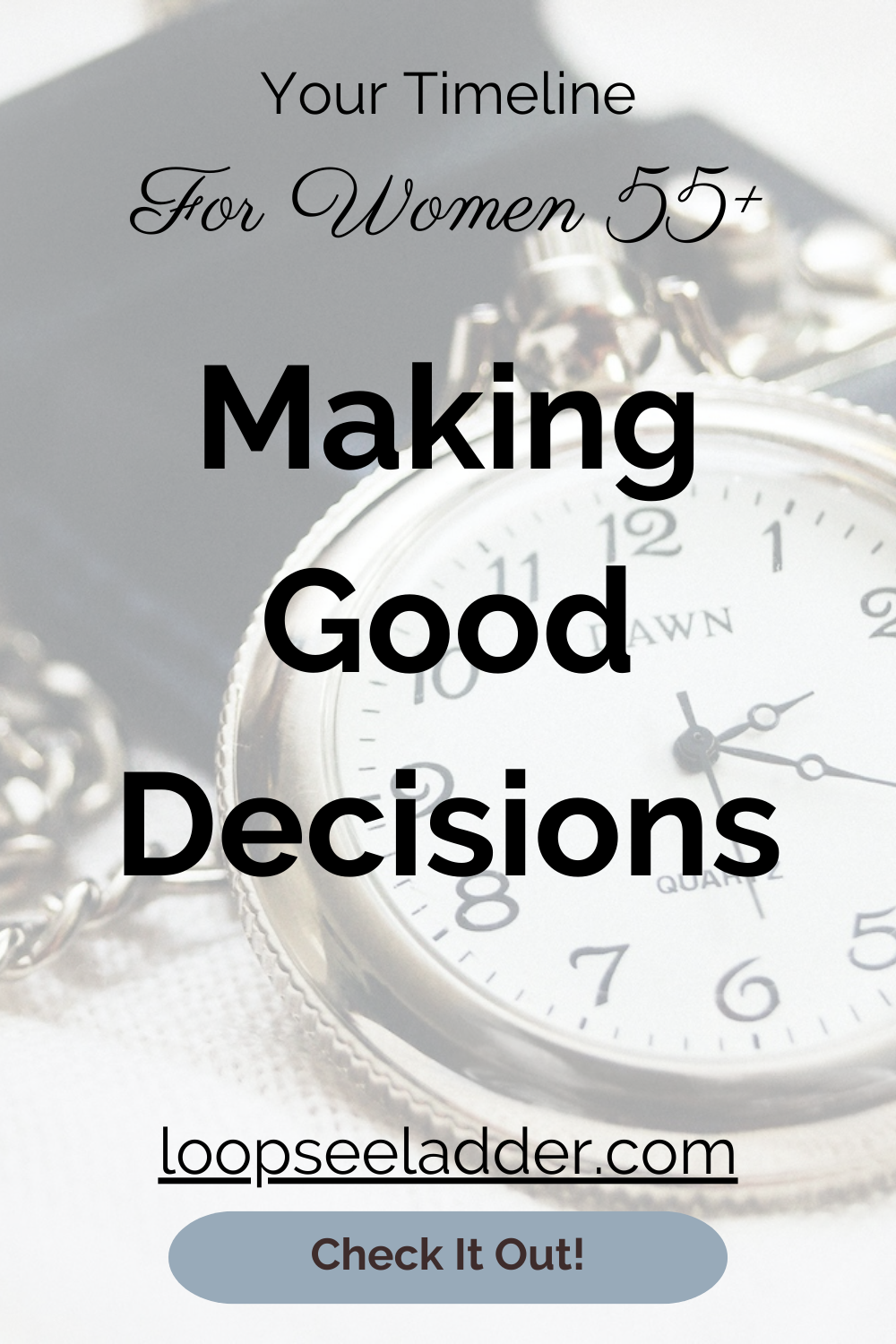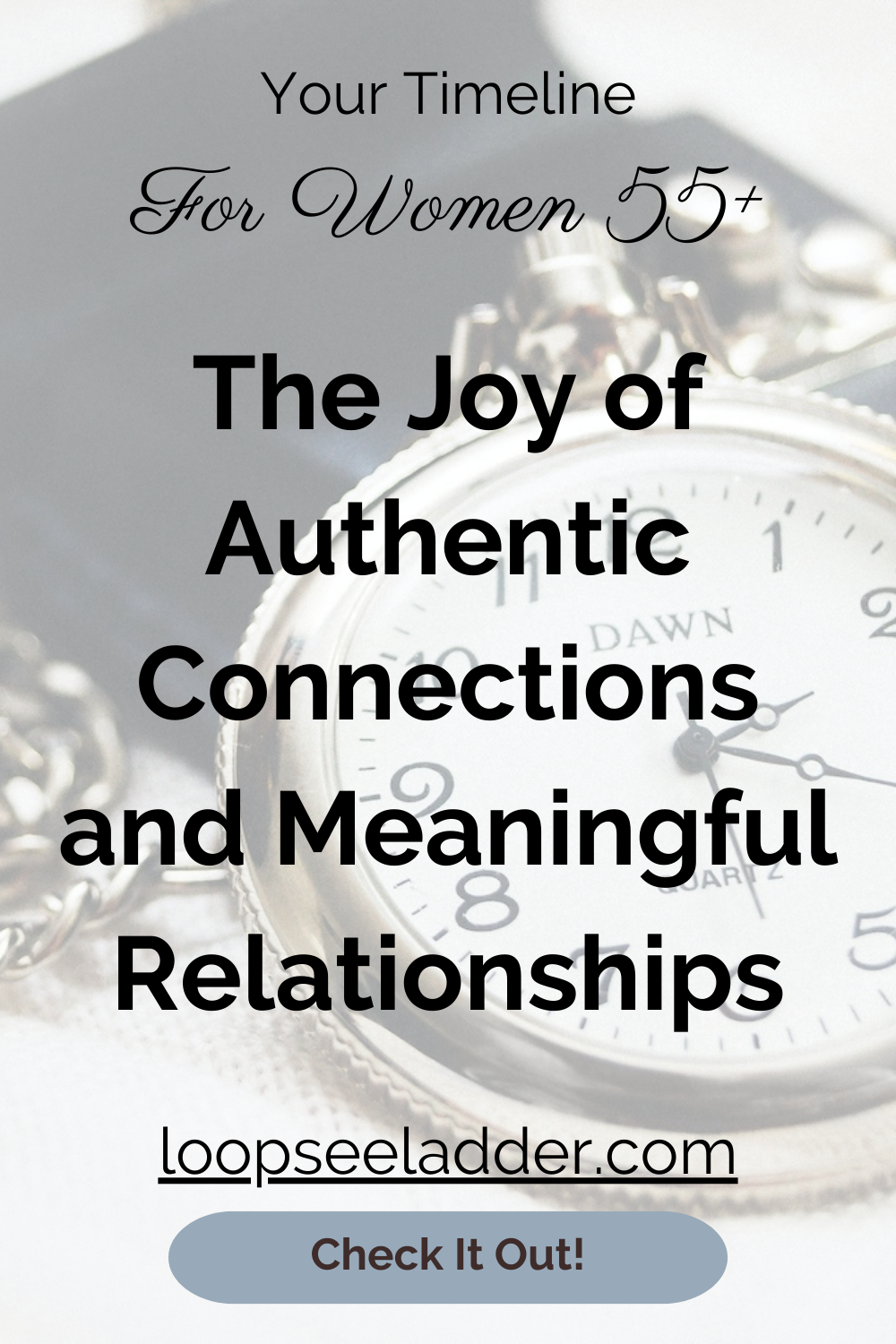The Surprising Secret to Effective Communication for Women Over 55
Are you ready to unlock the key to effective communication that can transform your relationships and boost your success as a woman over 55?
A surprisingly powerful secret exists that can revolutionize how you connect with others and support you in living your best life. Read on.
A Preamble
Are you ready to unlock the key to effective communication that can transform your relationships and boost your success as a woman over 55?
In a world where communication is often seen as a challenge, particularly for mature women, a surprisingly powerful secret exists that can revolutionize how you connect with others.
By delving into emotional intelligence, active listening, assertiveness, and relationship-building, you can overcome common barriers and experience a level of success you may not have thought possible.
This article will explore the unconventional approach to effective communication for women 55+, revealing how it can enhance your personal and professional life.
Get ready to navigate the intricacies of communication and discover strategies that will profoundly impact your relationships and achievements.
Understanding Common Communication Barriers
To fully embrace the power of effective communication as a woman over 55, it is crucial to understand the common barriers that can hinder our ability to connect with others.
These barriers can often arise from internal and external factors, making identifying and overcoming them essential to cultivate meaningful relationships and achieve success.
By recognizing and addressing these obstacles head-on, we can navigate the complexities of communication with confidence and finesse.
One of the most prevalent communication barriers is a lack of emotional intelligence, which refers to the ability to recognize, understand, and manage our own emotions, as well as empathize with the emotions of others. Without emotional intelligence, we may struggle to connect with others and effectively convey our thoughts and feelings. By embracing emotional intelligence, we can better understand ourselves and those around us, leading to more authentic and impactful communication.
Another common barrier is a failure to practice active listening. We often find ourselves so wrapped up in formulating our responses or thoughts that we fail to truly listen to what the other person is saying. This can lead to misunderstandings, miscommunications, and missed opportunities for connection. By honing our active listening skills, we can demonstrate genuine interest and conversation engagement, fostering stronger relationships and more precise communication.
Assertiveness, or the ability to express our needs and opinions confidently and respectfully, is another critical component of effective communication. Many women over 55 may struggle with assertiveness due to societal expectations or a fear of being perceived as aggressive. However, we can ensure our thoughts and feelings are heard and respected by embracing assertiveness and finding our voice. This strengthens our relationships and empowers us to achieve our goals and aspirations.
Lastly, building and maintaining relationships is vital for effective communication. Often, the quality of our relationships directly impacts how we communicate with others. A lack of trust, unresolved conflicts, or strained connections can create significant barriers to effective communication. By prioritizing relationship-building and investing time and effort into nurturing connections, we can lay a solid foundation for open, honest communication transcending age and gender.
Understanding and addressing these common communication barriers allows us to unlock the full potential of our communication skills as women over 55. By cultivating emotional intelligence, practicing active listening, embracing assertiveness, and nurturing relationships, we can overcome these obstacles and experience a new level of connection, meaning, and accomplishment in our personal and professional lives.
Embracing Emotional Intelligence
In addition to addressing common communication barriers, embracing emotional intelligence is another powerful tool for effective communication for women over 55.
Emotional intelligence refers to the ability to recognize, understand, and manage our own emotions and the emotions of others. By cultivating emotional intelligence, we can enhance our communication skills and foster stronger connections with those around us.
Emotional intelligence is crucial in effective communication, allowing us to navigate complex social interactions with empathy and sensitivity. By tuning into our emotions and the emotions of others, we can respond thoughtfully and appropriately, fostering understanding and connection. This is particularly important for women over 55, as we may be navigating various experiences and emotions, such as retirement, empty nesting, or caring for aging parents.
Furthermore, emotional intelligence enables us to communicate assertively and confidently while also considering the feelings and perspectives of others. By being aware of our emotions and triggers, we can approach conversations with a level-headedness that promotes respectful and productive dialogue.
When we embrace emotional intelligence, we also better manage conflicts and disagreements. Instead of allowing emotions to escalate the situation, we can approach conflicts with a sense of calm and understanding. This will enable us to communicate our needs and concerns effectively while also actively listening to the perspectives of others.
By prioritizing emotional intelligence in our communication, we can transcend age and gender stereotypes, creating an environment of mutual respect, understanding, and collaboration. Embracing emotional intelligence sets the stage for us to master active listening, a skill that further enhances our communication abilities.
Mastering Active Listening
When we embrace emotional intelligence, we also better manage conflicts and disagreements.
Instead of allowing emotions to escalate the situation, we can approach conflicts with a sense of calm and understanding. This will enable us to communicate our needs and concerns effectively while also actively listening to the perspectives of others.
Active listening goes beyond simply hearing what the other person is saying. It involves fully engaging with their words, body language, and emotions and responding in a way that shows genuine understanding and empathy. By giving complete attention to the speaker, we can pick up on subtle cues and nonverbal signals that provide deeper insights into their thoughts and feelings.
To master active listening, we need to put aside our agendas and biases. This means setting aside distractions, such as phones or internal thoughts, and giving the speaker our undivided attention. It involves being fully present in the conversation and showing genuine interest in what the other person is saying.
Additionally, active listening requires us to suspend judgment and avoid interrupting the speaker. Instead of rushing to offer our opinions or solutions, we allow the speaker to express themselves without interruption. This creates a safe space for open, honest communication where the speaker feels heard and valued.
Mastering active listening is a vital stepping stone towards developing assertiveness and confidence. When actively listening to others, we better understand their needs, concerns, and perspectives.
This understanding is a foundation for confidently expressing our needs and opinions, ensuring our voice is heard and respected.
By mastering active listening, we can foster more meaningful and productive conversations, setting the stage for the next step in effective communication: developing assertiveness and confidence.
Developing Assertiveness and Confidence
Developing assertiveness and confidence is not about being aggressive or dominating conversations. Instead, it is about finding the right balance between respect and standing up for ourselves. It involves recognizing our worth and the value of our thoughts and opinions.
We can communicate our abilities and ideas with clarity and conviction when we have confidence.
One way to develop assertiveness and confidence is by practicing self-awareness. Reflecting on our strengths, experiences, and capabilities can help us better understand ourselves. This self-awareness allows us to communicate authentically and assertively, as we know our worth and can confidently convey it.
Another critical aspect of developing assertiveness and confidence is setting clear boundaries. By clearly defining what is acceptable and unacceptable in our interactions, we establish a foundation for respectful communication. Setting limits allows us to assert ourselves without feeling guilty or compromising our values.
In addition, it is crucial to cultivate a positive mindset. Embracing a growth mindset, where we believe in our ability to learn and improve, helps to boost our confidence. By focusing on our strengths and accomplishments, we can overcome self-doubt and approach communication with empowerment.
Developing assertiveness and confidence also entails practicing effective body language and vocal tone. Non-verbal cues such as maintaining eye contact, standing tall, and speaking clearly and confidently can enhance our presence and convey assertiveness. We can project confidence and command attention by paying attention to these aspects of our communication.
Developing assertiveness and confidence is crucial in effective communication for women over 55.
It involves mastering active listening, practicing self-awareness, setting clear boundaries, cultivating a positive mindset, and refining our body language and vocal tone.
By honing these skills, we can confidently navigate conversations, ensuring our voice is heard and respected. This lays the foundation for building stronger relationships and fostering mutual understanding and collaboration.
Building Stronger Relationships
Building stronger relationships is essential to effective communication for women over 55.
While developing assertiveness and confidence is crucial, fostering connections and understanding with others is equally important.
By focusing on building solid relationships, women in this age group can create a supportive network and enhance their personal and professional lives.
One key element of building stronger relationships is active listening. We can cultivate trust and empathy by genuinely engaging in conversations and trying to understand others' perspectives. Active listening involves giving our full attention, asking clarifying questions, and paraphrasing to ensure we comprehend the message accurately. We can build rapport and establish deeper connections with those around us by demonstrating genuine interest and empathy.
Another crucial aspect is maintaining self-awareness. Recognizing and managing our emotions, biases, and triggers is essential to navigate relationships effectively. We can approach interactions with humility and openness by recognizing our strengths and weaknesses. This self-awareness allows us to respond thoughtfully and assertively rather than react impulsively, contributing to healthier and more meaningful relationships.
Setting clear boundaries is also vital in building stronger relationships. Women over 55 have a wealth of experience and wisdom, but it is essential to establish boundaries to maintain our well-being and prevent burnout. By clearly communicating our limits and expectations, we can create a balanced dynamic and ensure our needs are respected. Setting boundaries protects our mental and emotional health and reinforces our confidence and assertiveness.
Cultivating a positive mindset is another powerful way to foster stronger relationships. By focusing on the strengths and accomplishments of ourselves and others, we can create an uplifting and supportive environment. A positive mindset enables us to approach challenges with optimism and resilience, cultivating a sense of camaraderie and encouragement among those we interact with. This positivity and motivation contribute to more harmonious and productive relationships.
Finally, refining our body language and vocal tone can further enhance our ability to build stronger relationships. Non-verbal cues like maintaining eye contact, standing tall, and speaking clearly and confidently convey our assertiveness and command attention. By being mindful of these aspects of our communication, we can strengthen our presence and engage others more effectively.
Women over 55 can foster mutual understanding and collaboration by building stronger relationships. These connections lay the foundation for success in both personal and professional life, allowing us to thrive in all aspects of our journey.
Achieving Success in Both Personal and Professional Life
As women over 55, we have accumulated a wealth of knowledge, experience, and wisdom that positions us firmly in both personal and professional realms. However, the key to achieving success in both areas lies in the strength of our relationships.
In our personal life, nurturing meaningful connections with our loved ones is pivotal to our happiness and fulfillment. Building strong relationships with our partners, children, and friends requires effective communication and a genuine willingness to understand and support one another. Through open and honest dialogue, we can establish deeper bonds that withstand the test of time, providing us with a robust support system and a sense of belonging.
Professional life also thrives on the foundation of solid relationships. Whether we are climbing the corporate ladder or pursuing our entrepreneurial ventures, connecting and collaborating with others is essential. By cultivating professional networks and building strong relationships with colleagues, mentors, and industry peers, we open doors to opportunities, knowledge sharing, and support. These connections can provide us with a steady flow of ideas, guidance, and potential partnerships that help us reach new heights in our careers.
Refining our body language and vocal tone can further enhance our ability to build stronger relationships. Non-verbal cues like maintaining eye contact, standing tall, and speaking clearly and confidently convey our assertiveness and command attention. By being mindful of these aspects of our communication, we can strengthen our presence and engage others more effectively.
Ultimately, success in both personal and professional life is intertwined. The relationships we nurture outside of work often serve as a foundation for professional connections and vice versa. By putting effort into building and maintaining solid relationships, we create a supportive ecosystem that enables us to thrive in all aspects of our journey.
As women over 55, we have the power to achieve success in both our personal and professional lives.
Building stronger relationships opens us up to a world of possibilities. These connections provide us with the support, collaboration, and understanding necessary to navigate the complexities of the modern world while maintaining our individuality and thriving in all aspects of our journey.
Conclusion
Effective communication is not just a skill but a superpower that can unlock infinite possibilities for women over 55.
By understanding the common barriers, embracing emotional intelligence, mastering active listening, developing assertiveness and confidence, building stronger relationships, and achieving success in personal and professional life, women over 55 can break through limitations and thrive in all aspects of their lives.
It is not just about improving your relationships with others—it's about improving your relationship with yourself. It's about embracing your voice and worth and realizing the immense power that lies within you.
Please take action now and witness its positive impact on your relationships, achievements, and overall fulfillment.
As the saying goes, "Well-communicated is well-understood," the world is eagerly waiting to understand and appreciate all you have to offer.
In the words of Maya Angelou, "Words mean more than what is set down on paper. The human voice infuses them with shades of deeper meaning."
Let your voice be heard, let your words resonate, and let your communication be a force that propels you toward the life you desire. The surprising secret to effective communication is yours to embrace—unlock it, wield it, and watch yourself soar.
Further Reading
From Chris: “Unlocking the Power of Emotional Intelligence for Women 55+.”
From Eightify: “The Impact of Emotional Intelligence on Women's Perception.”
From Santander Open Academy: “Verbal and non-verbal communication in female leadership.”
From YouTube: “Communicating with Emotional Intelligence with Camilla Boyer.”
A Challenge For You:
Seek out social situations with people where you can observe and practice using your emotional intelligence and practical communication skills. Alternatively, watch for effective skills in movies, TV shows, or books you read.
Practice. Practice. Practice.
Keep a diary of what you are learning.
Celebrate your victories.
You are amazing!
Please consider sharing a link to this blog or site with people you know who could use it and pass it on to others. Also, I would love to read about your thoughts, ideas, and experiences. And … I would be appreciative of a coffee and croissant.
Other Blogs you might be interested in that highlight the Your Timeline category include:
Your feedback and sharing mean so much.
Click this microphone to be taken to my Contact Page. Scroll down and fill out the Feedback form. I want to hear from you.






